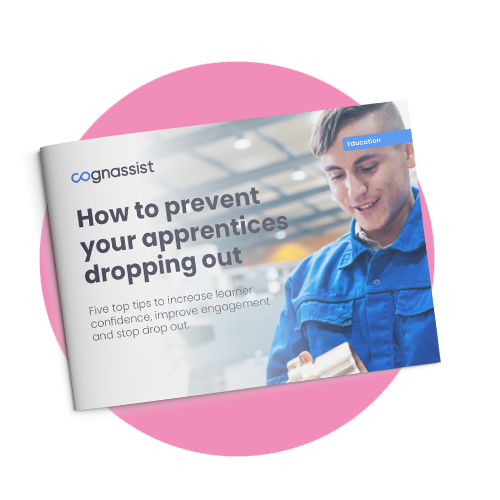Introduction
Let’s talk about drop out…
If we are serious about levelling up skills and providing a lifetime skills guarantee, we need to ensure every apprentice receives the same high quality experience and an equal opportunity of success. Especially now, with a widening disadvantage gap, we must provide greater support and opportunities for those at risk of dropping out.
According to the National Achievement Rates Tables (NARTs), learners with identified learning difficulties and disabilities (LDD) are more likely to dropout of their apprenticeship. The higher dropout rate for LDD apprentices is even more disheartening because the NARTs data also shows that when LDD learners are retained, they have the same pass rate as learners without LDD.
At Cognassist, we have always said that with the right support, learners who might typically struggle in education can go on to achieve alongside their peers. Providers need to take active steps to improve retention and support learners’ needs throughout their entire learning journey. It takes commitment from organisations to identify weak points and ensure a joined up approach, but many in the sector understand what’s at stake and are more than willing to drive positive changes.
The move towards a blended approach will also require providers to make reasonable adjustments and build in flexibilities from day one to ensure consistent and fully integrated learner support. Of course, with high caseloads and already stretched resources, this is a big ask.
Yet there are ways to provide personalised learner support and ensure staff have the correct training and tools to achieve this.





